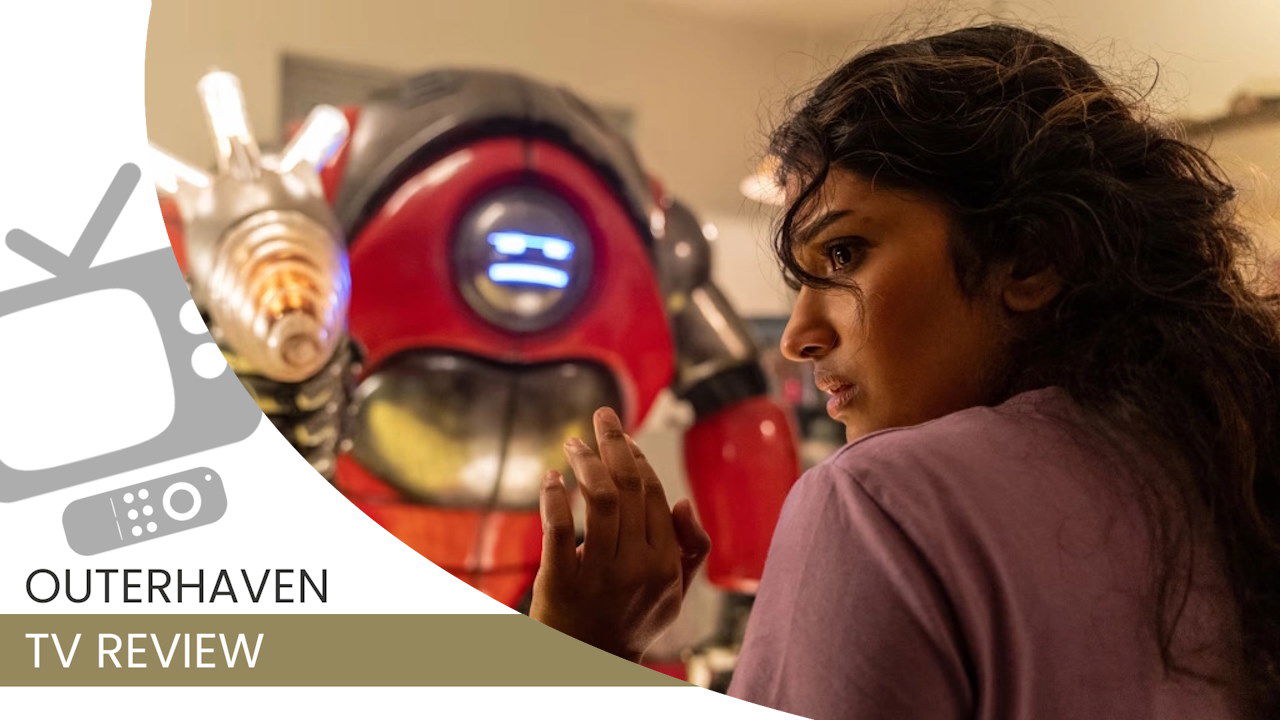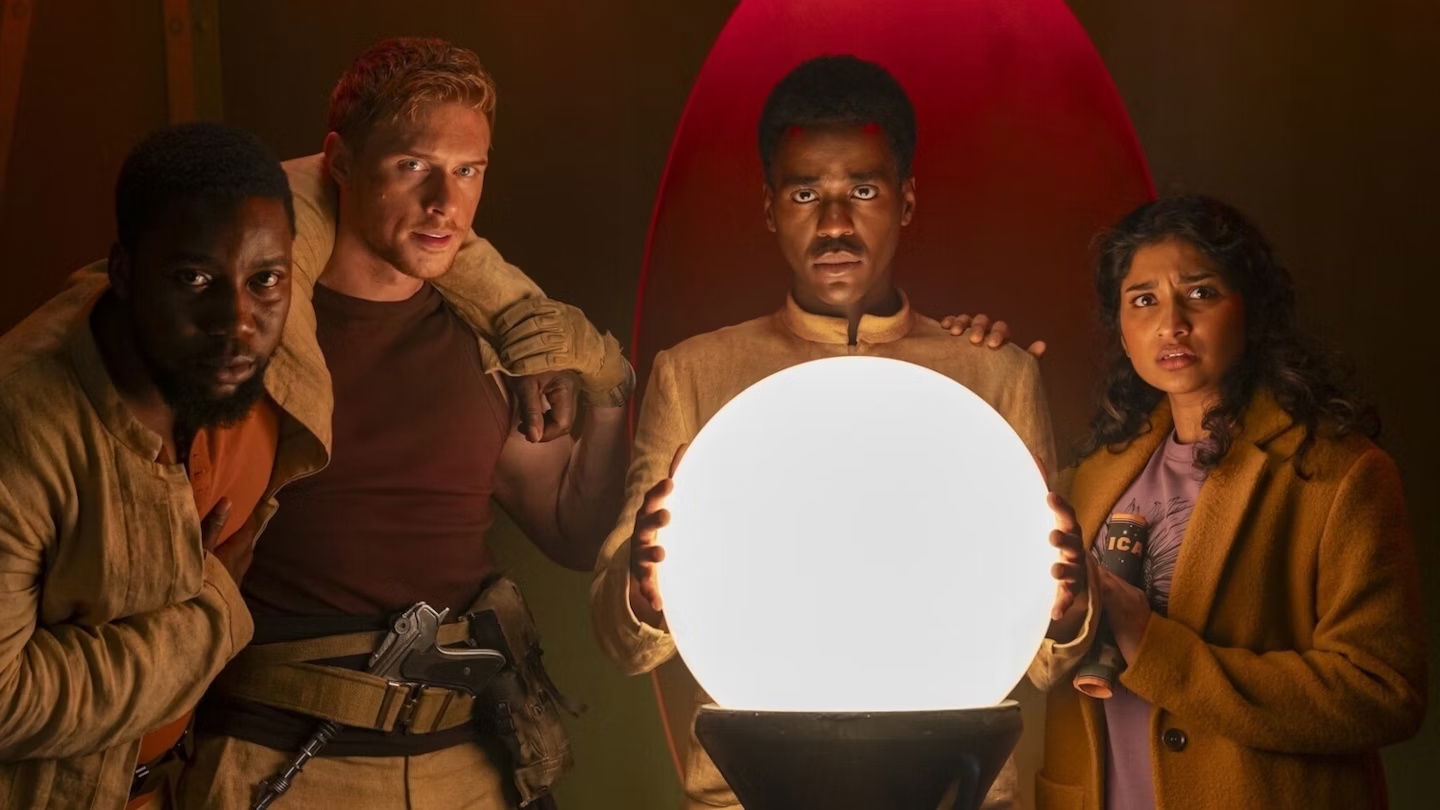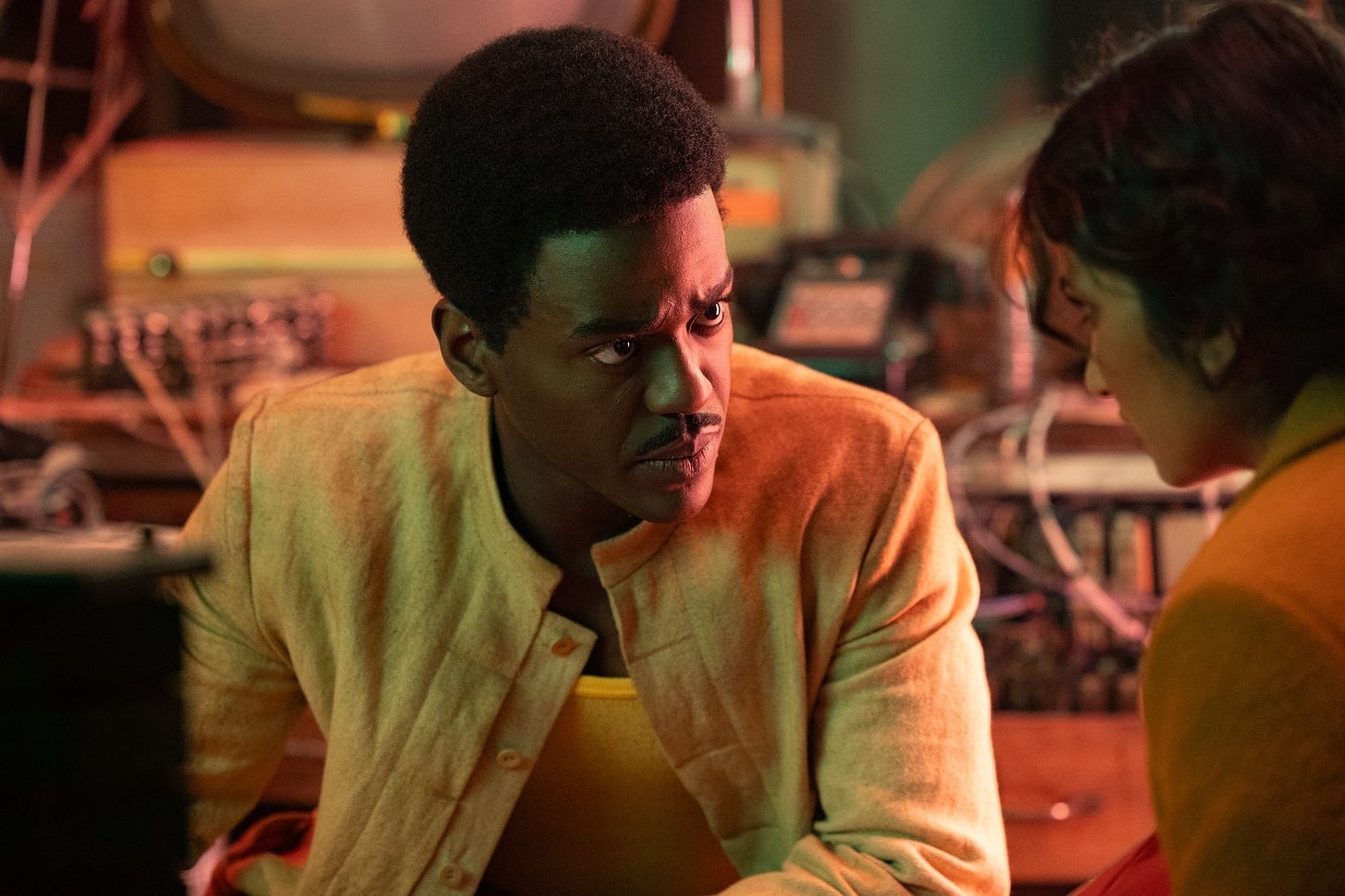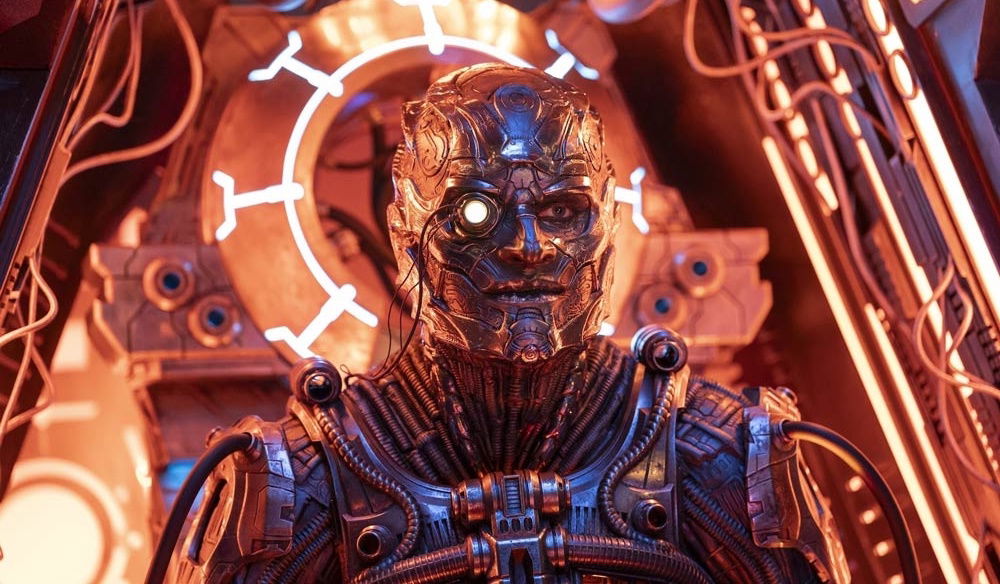First and foremost, apologies for not having this up sooner! I was at Comic-Con over the weekend and totally forgot this aired by the time I got back. (Playing catch-up means there’s always something to do!) However, I managed to get through the season premiere. For those who prefer the classic timeline, we’re on Series 15. As my Doctor Who: The Robot Revolution review will reveal, I clearly didn’t miss much by waiting to watch it. Unfortunately, it wasn’t exactly a riveting season premiere.
If this sounds familiar, it should. After all, I—like many other Whovians—haven’t exactly been a fan of Doctor Who’s quality in recent years. The writing has been inconsistent, the show is frequently labeled as “on the edge of cancellation” or at least facing a hiatus, and there are already rumors about Ncuti Gatwa leaving after this new season ends. It’s not a good look or feeling, which makes this premiere all the more frustrating because, once again, it feels like a mix of recycled material combined with questionable storylines and moments.
Alright, let’s get this started. The episode begins with a woman named Belinda, living an average life in England when, out of the blue, a group of robots abduct her and declare that she is the queen of a distant planet. Why? Because 17 years prior, her boyfriend gifted her a “star certificate,” naming a star they were under after her.
That alone stretches reality thin, but it only grows more absurd when The Doctor just misses her abduction and is then caught in a “time fracture.” This fracture sends him into the past, ahead of Belinda by six months, which ultimately leads him to “her planet” as part of the rebel human faction fighting to overthrow the evil robot empire, controlled by the vile “AI Generator.”
Yes. Really. And no, we don’t get much explanation for any of this aside from The Doctor “getting there first.” This theme runs throughout the episode and is particularly frustrating. For instance, The Doctor “got Belinda’s name” from someone “he doesn’t want to talk about.” Then he struggles to get her address—even with his Sonic Screwdriver—and there’s a time paradox that remains unresolved before we’re thrust into the main crux of the season’s overarching mystery.
While Doctor Who is known for its “season-spanning mysteries,” this episode is yet another example of everything being tied to a companion’s “random appearance” (see: Ruby Sunday, Clara Oswald, etc.). It’s getting tiresome, as it’s all been done before—and we haven’t even reached the “cliffhanger,” which is definitely a trope that’s been overused.
Now, what do I think of Belinda? She’s fine. Due to the breakneck pace of the episode, we don’t get to see much of her personality shine through. Even Ruby Sunday had more personality infused into her debut. We know Belinda is kind yet honest and possesses a quick wit that The Doctor will likely appreciate, but she also does odd things in bizarre moments that don’t make sense given everything happening around her.
For example, after being “saved” by the rebels, she’s blamed for all the misfortune they’ve suffered—even though it’s evident none of this is her fault in the slightest. If anything, The Doctor is more to blame, as he’s the one who insisted she be rescued after earning the rebels’ trust. Then, she inexplicably decides to “rat them out” to the robots—a decision that should have led to their deaths but was miraculously avoided due to sheer luck. Her “sacrifice play” could have ended everyone’s lives. Oops.
Additionally, there are moments of dialogue from her and others that feel forced, seemingly trying too hard to “add personality” to the scene. For instance, Belinda calls out The Doctor for “taking her DNA without her permission.” On some level, her anger is understandable, but that’s what bothers her the most in that moment? Really?
And that leads us to the villain reveal…
Yes, the “Generator AI,” or, as he was actually called…AL. As in Al, Belinda’s ex-boyfriend, who was apparently a controlling jerk. When did we learn he was a controlling jerk? In the briefest of flashbacks, which showed only one side of his “controlling nature,” with Belinda providing the rest through exposition. As a result, the reveal fell flat because we barely knew the character! Why should I care that this guy was “turned into an unfertilized egg” and swept up by a polishing robot when I barely had any reason to connect with him?
And then there’s the moment when Belinda says “Planet of the Incels.” Once again, it feels like Russell T. Davies shoehorning modern social issues into plot points without allowing them the space to develop or resonate (see: Dot and Bubble, among others). On top of that, can we talk about how The Doctor actually rejoiced when Al was “wiped away” without a second thought? That reaction doesn’t feel very Doctor-like, does it?
Oh, and speaking of “not caring for people I don’t know,” we were briefly introduced to Sasha-55, who was supposedly a “good friend” of The Doctor. She was “promised the stars” by him, yet she died just a few minutes into the episode. The Doctor cried, but I felt nothing. This was yet another instance of a character being killed off for “shock value,” resulting in a completely hollow and unimpactful moment.
Finally, and perhaps most frustratingly, the “big cliffhanger” of the episode—and the season as a whole—is that, despite Belinda begging to be returned home, she can’t go back just yet. Her path is “the long way round” because…Earth is gone by the time The Doctor tries to return there. Of course, it is. This is yet another retreaded plot point, as I mentioned earlier. We just finished the “Empire of Death” finale, where the entire universe was wiped out, and now we have to deal with Earth being destroyed for a moment in time…again.
Much like the Marvel or DC Comics universes, when you keep dealing with “end of the world” or “end of the universe” scenarios that are inevitably undone by the end, it’s hard to feel invested or curious about what happens next. Plus, as many have already pointed out, this entire plotline was spoiled in the trailers.
As I wrap up my Doctor Who: The Robot Revolution review, I do want to acknowledge that there were a few decent elements in this episode and some intriguing questions I’d like answered. However, much like last season—and even various parts of Jodie Whittaker’s run—the writing is so jumbled and incoherent at times that it’s difficult to appreciate any beauty amidst the flaws. Sure, things could improve in the next episode, but based on recent history, I’m not holding my breath…
Doctor Who The Robot Revolution Review
Summary
Doctor Who The Robot Revolution was not the “fresh start” that Doctor Who needed, and the “Fractures” in the franchise are growing with each misstep. I do hope this series turns itself around, but it’s not looking good at this point.
Pros
- Ncuti Gatwa is still fun.
- Belinda is a nice companion so far…
Cons
- The whole plot was a blur.
- …but she needs more to feel like a complete character.
- Rushed real-world elements led to eyerolls rather than shocks.
- Repeated storylines once again show their face.
-
Doctor Who The Robot Revolution Review






